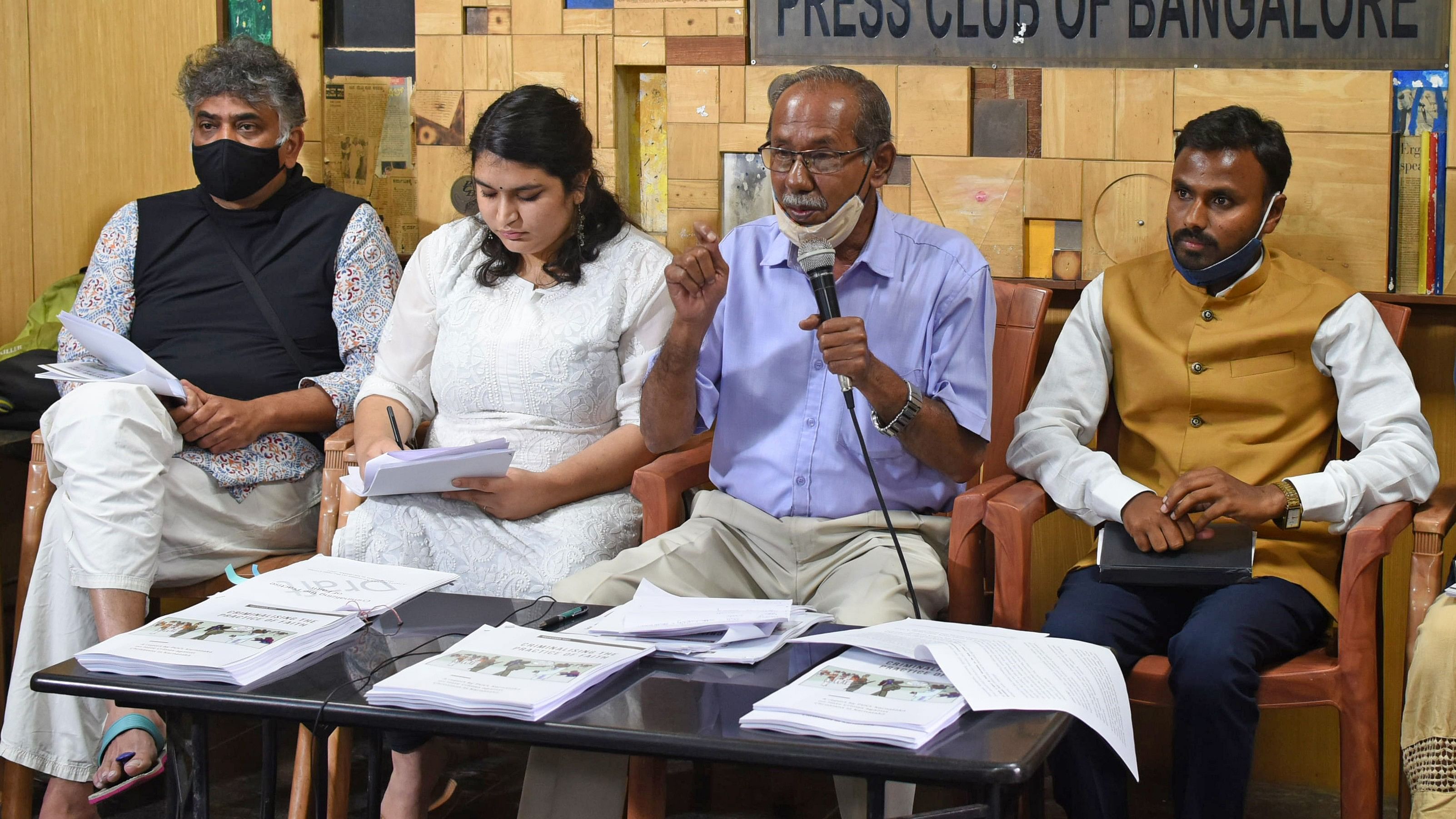
File photo of members of People’s Union for Civil Liberties
Credit: DH photo
Bengaluru: Restrictions on protests in Bengaluru have become "unreasonable" and are "infringing" on citizens' fundamental rights to freedom of speech, expression and assembly, say civil rights and workers’ groups, farmers and citizens.
A list of FIRs registered against protestors, compiled by the People’s Union for Civil Liberties (PUCL), indicates that 16 of them were registered since 2019 against over 200 people. Protesting farmers from Devanahalli were the targets of the FIRs in 2022 and, more recently, last month.
In August 2022, the High Court of Karnataka ruled that to allow "unobstructed vehicular traffic", all protests in Bengaluru were to be held in Freedom Park. Protestors were also to seek police permits and sign bonds.
Aishwarya R, the general secretary of PUCL, Bengaluru, explains that arbitrary restrictions have been placed on those who have approached the police to protest in Freedom Park as well.
"Some citizens wanted to gather in a show of solidarity after the Kolkata sexual assault became public. They were refused because the police forces would be ‘busy’ with Ganesh Chaturthi celebrations," she says. Similarly "evasive" reasons were cited to prevent assemblies from displaying solidarity with Palestine, she adds.
“Five separate groups approached the police independently, but all of these people’s requests were rejected. They were even questioned about the content of placards and were asked to name the songs that would be sung at the assembly,” she adds. Such processes, that dictate the content of protests and windows of time, are "antithetical" to the reasons behind and the point of protests, she adds.
When asked to define what classifies a gathering as a protest, Additional Commissioner of Police (East) Raman Gupta explains that there is no sacrosanct definition. "Anything that is not part of the common walk of life can be considered a protest," he says. “We have been very strict with implementing the high court judgment. We have law and order and traffic considerations."
Farmers protesting against land acquisition in Devanahalli taluk have expressed their frustration with the implementation of the judgement.
Although the revenue department has classified Devanahalli to be part of the Bengaluru Rural district, the taluk comes under the jurisdiction of the Bengaluru City Police.
"FIRs were filed against 13 people for protesting in Devenahalli town. Freedom Park is more than 35 km from our villages. We are protesting to prevent the acquisition of land and want to do so by sitting near our farms," says Ramesh Cheemachanahalli, a farmer in Channarayapatna. He adds that possibilities of obstructing vehicular flow in Devanahalli were also sparse as the town’s traffic is limited.
Visible protests are integral to democracies as they initiate a dialogue — one between the State and citizens, explains Vinay Sreenivasa, an advocate in Bengaluru. “The Nirbhaya protests and, more recently, protests against the farm laws ushered in changes in legislation. Relegating such protests to one area, imposing limitations on the kind or time of protests, reduces this visibility and prevents such dialogue from happening,” he adds.